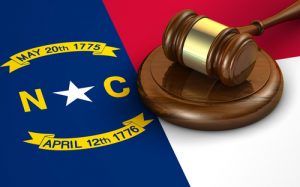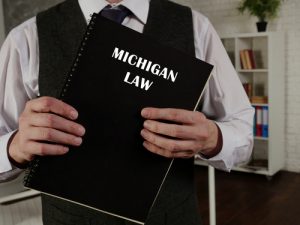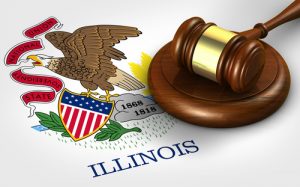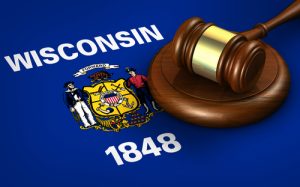 Health insurance subrogation involves much more than simply making demands on negligent tortfeasors. Coordination of Benefits (COB) is a subset of health Plan subrogation. It primarily concerns itself with situations where two different health Plans, or a health Plan and a no-fault automobile carrier, cover the same person or loss. Obviously, with two sources of coverage, the question becomes: Who pays what? The answer lies in the COB clauses contained in the competing insurance Plans or policies. The object is to compare the COB provisions contained in your Plan with language of the other Plan or policy and determine which Plan is primary.
Health insurance subrogation involves much more than simply making demands on negligent tortfeasors. Coordination of Benefits (COB) is a subset of health Plan subrogation. It primarily concerns itself with situations where two different health Plans, or a health Plan and a no-fault automobile carrier, cover the same person or loss. Obviously, with two sources of coverage, the question becomes: Who pays what? The answer lies in the COB clauses contained in the competing insurance Plans or policies. The object is to compare the COB provisions contained in your Plan with language of the other Plan or policy and determine which Plan is primary.
An even more common scenario arises with the many claims in which a health insurance Plan and a workers’ compensation policy may simultaneously be called upon to pay for the same injury. Health Plans often pay medical bills that are later discovered to have been the result of a work-related accident and covered by workers’ compensation. If an employee’s workers’ compensation claim is denied, the employee often has no choice but to submit his medical bills to his health insurance company—only later to discover that the workers’ compensation claim is accepted, or the employee prevails on the claim in court.
The problem is how to deal with benefits paid by a health policy for an injury which later turns out to be work-related and covered by a workers’ compensation policy. A typical health policy will contain an exclusion for accidents covered by workers’ compensation, but it is preferable that a health Plan have language which provides the health carrier with a right of reimbursement in a situation where the injury from which benefits paid is later determined to be work-related.
When a Plan has paid benefits and/or medical expenses for injuries arising out of an accident for which the beneficiary later receives workers’ compensation benefits, the Plan or policy could bring a federal ERISA claim pursuant to § 502(a)(3) seeking an equitable lien on the portion of the workers’ compensation settlement equal to the amounts of benefits paid under the Plan. But there could be an easier way.
In states which allow a health Plan to intervene into a pending workers’ compensation claim, Matthiesen, Wickert & Lehrer, S.C. (MWL) assists its clients in seeking reimbursement directly out of the pending workers’ compensation claim. Depending on the state you are in, while a workers’ compensation claim is pending, a health insurer may choose to pay the benefits and then seek reimbursement directly out of the workers’ compensation recovery.
California
 For example, in California, state law provides that a health Plan has a specific right to intervene into the workers’ compensation proceeding and seek reimbursement.[i] MWL aggressively pursues workers’ compensation lien rights on behalf of our clients throughout the State of California. We specialize in pursing lien claims for exempt entities, as described in Labor Code § 4903.05(d)(7), which includes healthcare service plans, group disability insurers, self-insured employee welfare benefit plans, Taft-Hartley health and welfare funds, and publicly funded programs providing medical benefits on a nonindustrial basis.
For example, in California, state law provides that a health Plan has a specific right to intervene into the workers’ compensation proceeding and seek reimbursement.[i] MWL aggressively pursues workers’ compensation lien rights on behalf of our clients throughout the State of California. We specialize in pursing lien claims for exempt entities, as described in Labor Code § 4903.05(d)(7), which includes healthcare service plans, group disability insurers, self-insured employee welfare benefit plans, Taft-Hartley health and welfare funds, and publicly funded programs providing medical benefits on a nonindustrial basis.
MWL uses independent third-party bill review experts to review HICF-1500 and UB-04 forms according to the Official Medical Fee Schedule. This way we can ensure our bill reviews are always impartial and carry more weight in negotiations. Taking liens to trial allows us to litigate and resolve complicated issues. Through the use of trial briefs, exhibit binders, and expert witnesses, MWL’s hardball approach to lien claims has taken many workers’ compensation claims administrators and defense attorneys by surprise.
Additionally, when we see that a change in the law needs to be made, MWL will lobby the California Legislature to make that change. MWL lobbied to change lien hearing procedures to allow for hearings to be held telephonically, which opened the Workers’ Compensation Appeal Board’s (W.C.A.B.) eyes to the need to allow lien claimants a right to have phone hearings. During the COVID-19 pandemic, lien claimants were finally allowed to appear by phone just like other case parties. We will always fight to make a difference for our clients.
Minnesota
In Minnesota, § 176.361 of the Workers’ Compensation Act provides as follows:
Subdivision 1. Right to Intervene. A person who has an interest in any matter before the Workers’ Compensation Court of Appeals, or Commissioner, or Compensation Judge, such that the person may either gain or lose by an order or decision may intervene in the proceeding by filing an application or motion in writing stating the facts which show the interest.[ii]
A workers’ compensation claim cannot settle until the interest of all interveners have been considered and dealt with. The Minnesota Supreme Court recently considered the effect of § 176.361, subd. 2(a), which provides, in part:
A motion to intervene must be served and filed within 60 days after a potential intervenor has been served with notice of a right to intervene or within 30 days of notice of an administrative conference or expedited hearing.[iii]
In Koehnen v. Flagship Marine Company, Minnesota emphasized the word “shall”, and in commenting on whether there is discretion beyond the 60-day period the court said:
The Act does not distinguish the rights of one category of potential intervenors from another. See generally Minn. Stat. § 176.361. By definition, the right to intervene depends on whether a person has an interest in a workers’ compensation matter, “such that the person may either gain *454 or lose by an order or decision.” Id., subd. 1. Here, the interest Johnson seeks to assert by initiating a proceeding for reimbursement is the same interest that he had the opportunity to protect through intervention. Johnson’s choice to “exercise his right to not intervene” does not shield him from the reality that he was afforded the opportunity to intervene precisely because he had something to lose. Absent a compelling reason to overrule our precedent by carving out an exception to our well-established rule for a special subset of potential intervenors, Johnson’s claim for reimbursement under Minn. Stat. § 176.271 must fail.[iv]
However, if a self-funded ERISA Plan is involved, § 176.631 would arguably be preempted and the terms of the ERISA Plan would control instead.[v]
Pennsylvania
In Pennsylvania, the workers’ compensation subrogation statute provides as follows:
Where an employee has received payments for the disability or medical expense resulting from an injury in the course of his employment paid by the employer or an insurance company on the basis that the injury and disability are not compensable under this Act in the event of an agreement or award for that injury the employer or insurance company who made the payment shall be subrogated out of the agreement or award to the amount so paid, if the right to subrogation is agreed to by the parties or is established at the time of hearing before the referee or the board.[vi]
 However, a subrogation claim must be asserted during the pendency of a workers’ compensation proceeding.[vii] A health insurer must intervene into a pending workers’ compensation claim if it wants to be reimbursed. However, Baierl incorrectly relies upon W.C.A.B. (Jante) v. Olivetti Corp.[viii] for justification of a denial of subrogation where that decision actually allows a future “credit” to the employer’s disability insurer, despite the lack of a subrogation agreement in the record, presumably to prevent a double recovery.
However, a subrogation claim must be asserted during the pendency of a workers’ compensation proceeding.[vii] A health insurer must intervene into a pending workers’ compensation claim if it wants to be reimbursed. However, Baierl incorrectly relies upon W.C.A.B. (Jante) v. Olivetti Corp.[viii] for justification of a denial of subrogation where that decision actually allows a future “credit” to the employer’s disability insurer, despite the lack of a subrogation agreement in the record, presumably to prevent a double recovery.
It should be noted that the health insurer’s reimbursement can exceed the amount liable in the medical cost containment provision under the Pennsylvania Workers’ Compensation Act.[ix] The reason for this is that the insurance contract controls the charges for which medical providers may be compensated.[x] This is because subrogation claims are exempted from the cost containment provisions of the Pennsylvania Workers’ Compensation Act. A private health insurer is subrogated to the full amount of medical expenses it pays for a claimant’s treatment irrespective of the fee caps contained in § 306(f.1)(3)(i) of the Act.[xi] Therefore, the workers’ compensation carrier must reimburse the employee’s private health insurer the full amount paid for the employee’s medical expenses irrespective of the cost containment provisions of the Act.[xii]
New Jersey
 In New Jersey, the workers’ compensation statute specifically provides that the division of workers’ compensation is “authorized to incorporate in any award, order, or approval of settlement, an order requiring the employer or his insurance carrier to reimburse such insurance company, corporation, person, or organization in the amount of such medical, surgical or hospital services so paid on behalf of such petitioner.”[xiii] One court even allowed a PIP insurance carrier to pursue a claim directly against a workers’ compensation insurance carrier for reimbursement.[xiv] It could be argued that a health insurance carrier should be allowed to do the same thing. Even where the Division rules against an intervening health insurance carrier, the health insurance carrier can thereafter proceed against its insured directly because the Division’s ruling is now binding.[xv] Where a health insurer fails to provide notice to parties of interest, the Division is not authorized to reopen a workers’ compensation claim.[xvi] Furthermore, New Jersey law does not authorize the Division to approve a settlement that only partially reimburses the health insurance carrier.[xvii]
In New Jersey, the workers’ compensation statute specifically provides that the division of workers’ compensation is “authorized to incorporate in any award, order, or approval of settlement, an order requiring the employer or his insurance carrier to reimburse such insurance company, corporation, person, or organization in the amount of such medical, surgical or hospital services so paid on behalf of such petitioner.”[xiii] One court even allowed a PIP insurance carrier to pursue a claim directly against a workers’ compensation insurance carrier for reimbursement.[xiv] It could be argued that a health insurance carrier should be allowed to do the same thing. Even where the Division rules against an intervening health insurance carrier, the health insurance carrier can thereafter proceed against its insured directly because the Division’s ruling is now binding.[xv] Where a health insurer fails to provide notice to parties of interest, the Division is not authorized to reopen a workers’ compensation claim.[xvi] Furthermore, New Jersey law does not authorize the Division to approve a settlement that only partially reimburses the health insurance carrier.[xvii]
Delaware
 There are no statutes or case decisions involving a health insurer’s right of reimbursement from a pending worker’s compensation claim. However, in one case, an employee was not allowed to recover for medical expenses through worker’s compensation claim where those expenses had been paid through a health insurance policy.[xviii] The court considered the fact that there is no express legislative authority permitting subrogation. In theory, this decision could be used to permit a health insurer to pursue reimbursement against the employer or employee. However, there is no legislative authority allowing a health insurer to be a party to a worker’s compensation proceeding.
There are no statutes or case decisions involving a health insurer’s right of reimbursement from a pending worker’s compensation claim. However, in one case, an employee was not allowed to recover for medical expenses through worker’s compensation claim where those expenses had been paid through a health insurance policy.[xviii] The court considered the fact that there is no express legislative authority permitting subrogation. In theory, this decision could be used to permit a health insurer to pursue reimbursement against the employer or employee. However, there is no legislative authority allowing a health insurer to be a party to a worker’s compensation proceeding.
North Carolina
 A North Carolina Court of Appeals has held that a health insurer may intervene as a real party in interest in a workers’ compensation proceeding when it alleges that it has paid medical expenses due to an employee’s compensable injury.[xix] In response to this decision, the North Carolina Legislature passed a law which provides that a health Plan may not intervene or participate in a workers’ compensation proceeding to determine whether a claim is compensable or to seek reimbursement for medical benefits made under the Plan.[xx] However, the statute provides that the health Plan may seek reimbursement from the employee, employer, or carrier that is liable or responsible for the specific medical charge. In addition, upon an adjudication that a claim is compensable, the “party or parties liable shall notify in writing any known health benefit Plan covering the employee of the admission or adjudication.”[xxi] However, this has not stopped federal district courts and courts of appeals alike from referencing the availability of attorneys’ fees to both Plans and Plan beneficiaries in actions brought under ERISA.
A North Carolina Court of Appeals has held that a health insurer may intervene as a real party in interest in a workers’ compensation proceeding when it alleges that it has paid medical expenses due to an employee’s compensable injury.[xix] In response to this decision, the North Carolina Legislature passed a law which provides that a health Plan may not intervene or participate in a workers’ compensation proceeding to determine whether a claim is compensable or to seek reimbursement for medical benefits made under the Plan.[xx] However, the statute provides that the health Plan may seek reimbursement from the employee, employer, or carrier that is liable or responsible for the specific medical charge. In addition, upon an adjudication that a claim is compensable, the “party or parties liable shall notify in writing any known health benefit Plan covering the employee of the admission or adjudication.”[xxi] However, this has not stopped federal district courts and courts of appeals alike from referencing the availability of attorneys’ fees to both Plans and Plan beneficiaries in actions brought under ERISA.
Indiana
 In Indiana, the Workers’ Compensation Board is given authority to determine the amount of any reimbursement owed to a health Plan or health insurer for a work-related injury for which it has paid benefits. The Indiana Court of Appeals has indicated that health insurer’s participation in workers’ compensation claims will help prevent future attempts by workers’ compensation carriers to shift the burden of payment by “settling” with employees if the employer agrees to stipulate that the injuries were not work-related.[xxii] It may be argued that a health Plan is obligated to pay attorney’s fees to the worker and his or her attorney for any benefits reimbursed out of the workers’ compensation claim.[xxiii] The basis for the attorney’s fee claim was the predecessor statute to § 34-53-1-2, the current Common Fund Doctrine in Indiana.[xxiv]
In Indiana, the Workers’ Compensation Board is given authority to determine the amount of any reimbursement owed to a health Plan or health insurer for a work-related injury for which it has paid benefits. The Indiana Court of Appeals has indicated that health insurer’s participation in workers’ compensation claims will help prevent future attempts by workers’ compensation carriers to shift the burden of payment by “settling” with employees if the employer agrees to stipulate that the injuries were not work-related.[xxii] It may be argued that a health Plan is obligated to pay attorney’s fees to the worker and his or her attorney for any benefits reimbursed out of the workers’ compensation claim.[xxiii] The basis for the attorney’s fee claim was the predecessor statute to § 34-53-1-2, the current Common Fund Doctrine in Indiana.[xxiv]
Michigan
 A health Plan/insurer is entitled to reimbursement for work-related benefits it has paid to an employee, regardless of whether the payments were “voluntary.”[xxv] However, this right of reimbursement is dependent on a determination that the injury was work-related and that the payments made by the Plan were reasonable and necessary. These issues fit within the jurisdictional authority granted to the Michigan Compensation Bureau under § 416.841. The Plan may intervene into the existing workers’ compensation claim by filing a Form 104 or any application in writing.[xxvi]
A health Plan/insurer is entitled to reimbursement for work-related benefits it has paid to an employee, regardless of whether the payments were “voluntary.”[xxv] However, this right of reimbursement is dependent on a determination that the injury was work-related and that the payments made by the Plan were reasonable and necessary. These issues fit within the jurisdictional authority granted to the Michigan Compensation Bureau under § 416.841. The Plan may intervene into the existing workers’ compensation claim by filing a Form 104 or any application in writing.[xxvi]
Texas
Reimbursement of a health insurer from a pending workers’ compensation claim is governed by § 409.009, which provides as follows:
§ 409.009. Subclaims
A person may file a written claim with the division as a subclaimant if the person has:
(1) Provided compensation, including health care provided by a health care insurer, directly or indirectly, to or for an employee or legal beneficiary; and
(2) Sought and been refused reimbursement from the insurance carrier.[xxvii]
 The claim of the health insurer is considered a “subclaim” and the health insurer is considered a “subclaimant.” The health insurer needs to be a signatory to the Division of Workers’ Compensation’s (DWC) network through a 251 Matching Agreement (there is a contract involved), go online, and do a “data match.” There are two deadlines; six (6) months after a record check under § 402.084, and eighteen (18) months after the carrier paid for the particular bill for which reimbursement is sought. In order for the health insurer to become a Trading Partner and send a Health Plan Claim Matching request, a three-part process must be undertaken.
The claim of the health insurer is considered a “subclaim” and the health insurer is considered a “subclaimant.” The health insurer needs to be a signatory to the Division of Workers’ Compensation’s (DWC) network through a 251 Matching Agreement (there is a contract involved), go online, and do a “data match.” There are two deadlines; six (6) months after a record check under § 402.084, and eighteen (18) months after the carrier paid for the particular bill for which reimbursement is sought. In order for the health insurer to become a Trading Partner and send a Health Plan Claim Matching request, a three-part process must be undertaken.
- Initiating Division EDI Trading Partner (TP) Relationship.
- Health Plan Claim Matching Data Request Process.
- Health Plan Claim Matching Data Response.
Many other states do not allow health Plans and health insurers to subrogate or seek reimbursement by directly participating in workers’ compensation proceedings.[xxviii]
Illinois
 Under Illinois law, a workers’ compensation carrier will not be directly liable to a Plan seeking reimbursement after settlement of a workers’ compensation claim, because a workers’ compensation carrier has no obligation to recognize the Plan’s subrogation rights and reimburse the Plan after they settle with the Plan’s covered individuals.[xxix] In such a situation, the Plan’s right of reimbursement is directly against the Plan beneficiaries.
Under Illinois law, a workers’ compensation carrier will not be directly liable to a Plan seeking reimbursement after settlement of a workers’ compensation claim, because a workers’ compensation carrier has no obligation to recognize the Plan’s subrogation rights and reimburse the Plan after they settle with the Plan’s covered individuals.[xxix] In such a situation, the Plan’s right of reimbursement is directly against the Plan beneficiaries.
Wisconsin
 In Wisconsin, § 102.30(7)(a) specifically prohibits a health insurer from intervening into a workers’ compensation proceeding. If it is not reimbursed from a workers’ compensation settlement, it can deny payments of post-compromised medical expenses made to the insured. Merely because a Plan is not entitled to intervene into a workers’ compensation proceeding does not mean that it cannot proceed directly against the insured for reimbursement.[xxx]
In Wisconsin, § 102.30(7)(a) specifically prohibits a health insurer from intervening into a workers’ compensation proceeding. If it is not reimbursed from a workers’ compensation settlement, it can deny payments of post-compromised medical expenses made to the insured. Merely because a Plan is not entitled to intervene into a workers’ compensation proceeding does not mean that it cannot proceed directly against the insured for reimbursement.[xxx]
If you should have any questions regarding this article, our workers’ compensation lien claims program in particular, or reimbursement of health insurance liens in other states, please contact Doug Lehrer at dlehrer@mwl-law.com or Matt Spolsky at mspolsky@mwl-law.com
[i] Cal. Lab. Code § 4903.5(a).
[ii] M.S.A. § 176.361 (2004).
[iii] M.S.A. § 176.361, subd. 2(a).
[iv] Koehnen v. Flagship Marine Company, 947 N.W.2d 448 (Minn. 2020).
[v] See 29 U.S.C. § 1144(A); Polfiet v. Northern Lights Distributing, 71 W.C.D . 197,210-11,2011 WL 2117801 (“Minnesota cannot, by statute or case law, preempt this contractual right contained in an employee benefits plan governed by ERISA.”).
[vi] 77 P.S. § 671 (2001).
[vii] Baierl Chevrolet v. W.C.A.B., 613 A.2d 132 (Pa. Cmwlth. 1992).
[viii] W.C.A.B. (Jante) v. Olivetti Corp., 364 A.2d 735 (Pa. Cmwlth.1976).
[ix] Furnival State Machinery/Transamerica Ins. Group v. W.C.A.B., 757 A.2d 433 (Pa. Cmwlth. 2000).
[x] Id.
[xi] Section 306(f.1)(3)(i) provides, in pertinent part: For purposes of this clause, a provider shall not require, request or accept payment for the treatment, accommodations, products or services in excess of one hundred thirteen per centum of the prevailing charge at the seventy-fifth percentile; one hundred thirteen per centum of the applicable fee schedule, the recommended fee or the inflation index charge; one hundred thirteen per centum of the DRG payment plus pass-through costs and applicable cost or day outliers; or one hundred thirteen per centum of any other Medicare reimbursement mechanism, as determined by the Medicare carrier or intermediary, whichever pertains to the specialty service involved, determined to be applicable in this Commonwealth under the Medicare program for comparable services rendered…. (Emphasis Added).
[xii] Borough v. W.C.A.B. (Ritter), 2009 WL 9096662 (Pa. Cmwlth. 2009).
[xiii] N.J.S.A. § 34:15-15.1.
[xiv] Aetna Casualty & Sur. Co. v. Para Mfg. Co., 424 A.2d 423 (N.G. N.J. Super. 1980).
[xv] Hosp. Service Plan of N.J. v. Phillips, 313 A.2d 811 (N.J. Dist. Ct. 1973).
[xvi] Bielak v. Counties Contract & Constr. Co., 230 A.2d 535 (N.J. 1967).
[xvii] Hutherington by Hutherington v. Briarwood Coachright, 602 A.2d 292 (N.J. Super. 1992).
[xviii] Guy J. Johnson Transp. Co. v Dunkle, 541 A.2d 551 (Del. Super. 1988).
[xix] Hansen v. Crystal Ford-Mercury, Inc., 531 S.E.2d 867 (N.C. App. 2000).
[xx] N.C.G.S.A. § 97-90.1.
[xxi] Id.
[xxii] Associated Ins. Co., Inc. v. Burns, 562 N.E.2d 430 (Ind. App. 1990).
[xxiii] Cook v. Humana Healthcare Plan, Inc., 636 N.E.2d 166 (Ind. App. 1994).
[xxiv] I.C. § 34-51-1-2.
[xxv] Ptak v. Pennwalt Corp., 316 N.W.2d 251 (Mich. App. 1982).
[xxvi] Id.
[xxvii] Tex. Labor Code Ann. § 409.009.
[xxviii] Allied Am. Mut. Fire Ins. Co. v. Loveman, 139 A.2d 227 (Md. 1958); Guy J. Johnson Transp. Co. v. Bunkle, 541 A.2d 551 (Del. Super. 1988); General Am. Life Ins. Co. v. Industrial Comm’n, 454 N.E.2d 643 (Ill. 1983); Wis. Stat. § 102.30(7)(a) (prohibiting health Plan from intervening into workers’ compensation proceedings); But see, Employers Health Ins. Co. v. Tesmer, 459 N.W.2d 203 (Wis. App. 1991) (health Plan can recover payments indirectly through use of reimbursement clause in policy which requires claimant to reimburse carrier for payments made that should have been made by the workers’ compensation insurer).
[xxix] Graphic Communications Nat’l Health & Welfare Fund v. Tackett, 2007 WL 2570377 (S.D. Ill. 2007).
[xxx] Tesmer, supra.






